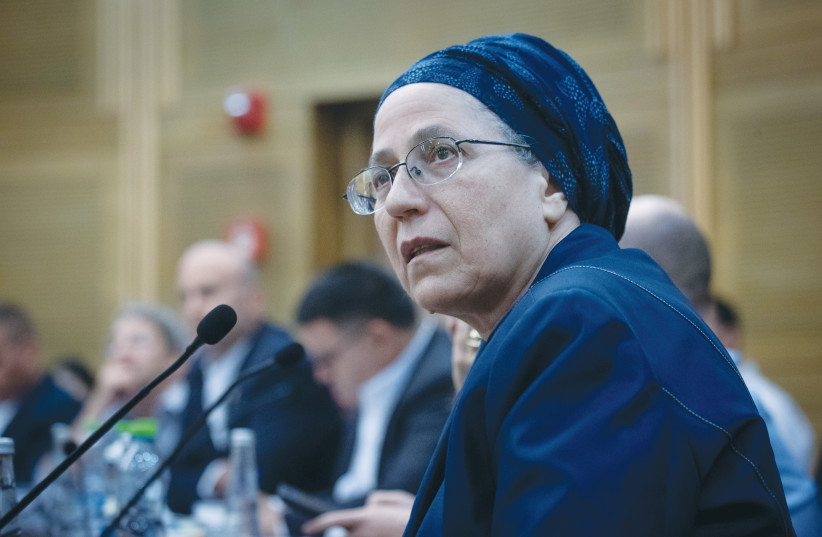Israel’s Settlement and National Missions Ministry, led by Minister Orit Strock, has withdrawn its sponsorship from an upcoming Jewish music festival after organizers denied entry to a group of 100 IDF soldiers.
According to a report by Michael Shemesh of Israel’s Kan News, the festival organizers denied access to a group of soldiers, whose attendance was arranged by the Netzah Yehuda organization, which supports haredi (ultra-Orthodox) enlistment in the Israel Defense Forces (IDF). The Netzah Yehuda organization, which supports haredi (ultra-Orthodox) enlistment in the Israel Defense Forces (IDF), arranged the soldiers’ attendance, but the festival organizers denied them access, according to a report by Michael Shemesh of Israel’s Kan News. Even though the organization had arranged bus transportation for the soldiers to attend the event in Jerusalem, they were not permitted to participate.
The festival, known as the Simchas Beis Hashoeva, is hosted by the Eretz Hakodesh faction within the World Zionist Organization (WZO); it was promoted as an event for “yeshiva scholars from abroad.” Eretz Hakodesh joined the WZO in 2020, becoming the first haredi faction to participate actively in the organization. Founded by Rabbi Pesach Lerner, the faction aims to bring a traditional Jewish voice to the Zionist movement, emphasizing Torah study and religious values.
WZO is a global political organization founded in 1897 to promote the establishment of a Jewish homeland in what is now Israel. It continues to serve as an umbrella organization bringing together various Jewish communities and ideological groups worldwide, working to support Jewish education, aliyah (immigration to Israel), and cultural projects. The WZO’s highest decision-making body is the World Zionist Congress, which convenes every five years to elect its leadership and set its agenda. The Congress includes representatives from different factions, each representing various streams of Jewish thought, including religious groups, secular Zionists, progressive and conservative movements – and now, haredi factions like Eretz Hakodesh. These factions often reflect the diversity of the Jewish world, bringing their unique perspectives to the organization and thus influencing its priorities.

The presence of a haredi faction like Eretz Hakodesh within the WZO highlights a complex dynamic. Traditionally, the haredi community has been cautious, if not openly skeptical, of Zionism, especially its secular elements. The WZO, historically representing a more secular Zionist vision, now includes Eretz Hakodesh, which seeks to ensure that religious perspectives and priorities are considered in Zionist initiatives. This addition reflects the evolving relationship between religious groups and the broader Zionist movement as Eretz Hakodesh balances promoting religious values while engaging with an institution that many in their community have viewed with ambivalence.
Strock comments
Eretz Hakodesh told The Jerusalem Post, “As we have previously explained, this is an event for English speakers and students from abroad. The one hundred tickets were given to groups and organizations for lone soldiers from the United States and from abroad.”
Strock emphasized that the Israeli government would not support any event that disrespects IDF service, stating, “We will not agree to participate in an event that maligns those who serve in the IDF.”
Upon the request of the Jerusalem Municipality, tickets were also given to soldiers without foreign citizenship.
